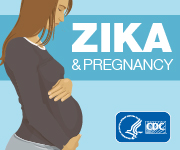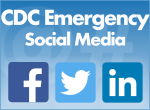Coping with a Disaster or Traumatic Event
Helping Children Cope
Children base their reactions in part on what they see from the adults around them. When parents and caregivers deal with a disaster calmly and confidently, they can provide the best support for their children. The better prepared parents are, the more reassuring they are to others around them, especially children.
Self care and preparation are critical for parents and caregivers. The more prepared, rested, and relaxed they are, the better they can respond to unexpected events and the more they can make decisions that will be in the best interest of those for whom they are responsible.
Children’s reactions depend on their age and are affected by how close they are to an event, their level of exposure to it through TV, and how they see their parents and caregivers reacting.
Seeing repeated images of a disaster in the media can intensify people’s distress. Early on, consider limiting the amount of exposure you want for yourself and your loved ones.
What you can do to help others cope with disaster
-
Now:
Get informed; develop a family disaster plan; assemble disaster supplies kits; talk about your actions; think about how to handle stress; ask questions about things you don’t understand; practice your plans; identify support networks in your community. -
At the start of a disaster:
Listen to the authorities; show understanding; share facts with children; share plans to keep them safe. -
During a disaster:
Calm fears that someone will be killed or injured; calm fears that children will be left alone or separated from their family; stay as connected as possible with kids and with others, as it provides care, support, and distraction. -
After a disaster:
Calm fears that it will happen again.
Common Reactions
In most children, these common reactions will fade over time. Children who were directly exposed to a disaster can become upset again; behavior related to the event may return if they see or hear reminders of what happened. If children continue to be very upset, if their reactions hurt their schoolwork or relationships, then parent may want to talk to a professional or have their children to talk to a provider who specializes in children’s needs.
For infants to 6 year olds
Infants may become more cranky. They may cry more than usual or want to be held and cuddled more. Preschool and kindergarten children may feel helpless, powerless and frightened about being separated from their parent/caregiver. They may return to bed-wetting and have a hard time sleeping.
For 7 to 10 year olds
Older children who know about loss may feel sad, mad or afraid the event will happen again. Peers may share false information that parents or caregivers then would need to correct. They may focus on details of the event and want to talk about it all the time. This may disrupt their concentration and affect how well they do in school.
For preteens and teenagers
Some preteens and teenagers respond with risky behaviors. This could include reckless driving, alcohol or drug use. Others may become afraid to leave home. They may cut way back on how much they hang out with their friends. They can feel overwhelmed by their intense emotions and yet be unable to talk about them. Those emotions may lead to increased friction, arguing and even fighting with siblings, parents/caregivers or other adults.
For special-needs children
Children who are ventilator-dependent, or are confined to a wheelchair or bed, may have even more pronounced reactions to threatened or actual terrorism. The same is true for youth with other physical or mental limitations. They might display feelings like distress, worry or anger because they have less control over how they get around than other people. They may need extra verbal reassurance, or more explanations, hugs, comfort and other positive physical contact.
Not all children respond these ways. Some might have more severe, longer-lasting reactions that are influenced by the following factors:
- Direct exposure to the disaster: whether they were evacuated or saw people injured or dying would affect them, as would being injured themselves or feeling their own lives were threatened.
- Loss: the death or major injury of a family member, close friend or pet.
- Ongoing stress from the effects of disaster: this includes being away from home, losing contact with friends and neighbors and losing things that were important to them, like a favorite toy or access to a playground. Their lives are disrupted when they no longer have a usual meeting place or their routines and living conditions change.
- A prior experience of trauma: including having lived through or observed abuse or a major disaster.
Online resources
For more information about how to cope with a disaster, visit the following:
- Caring for Children in a Disaster
- American Red Cross Recovering After a Disaster or Emergency
- Substance Abuse Mental Health Services Administration (SAMHSA) Disaster Technical Assistance Center
- National Institute of Mental Health (NIMH) Coping with Traumatic Events
- National Child Traumatic Stress Network
This information is provided by the American Red Cross and the Centers for Disease Control and Prevention (CDC).
- Page last reviewed: January 31, 2014
- Page last updated: October 17, 2017
- Content source:
- Maintained By:





 ShareCompartir
ShareCompartir